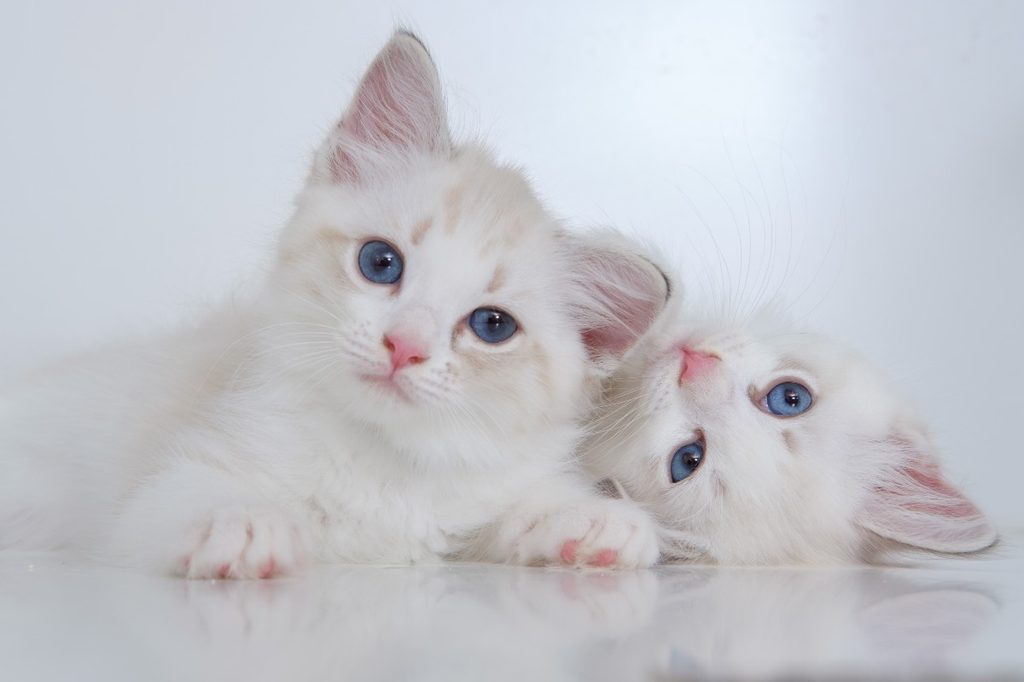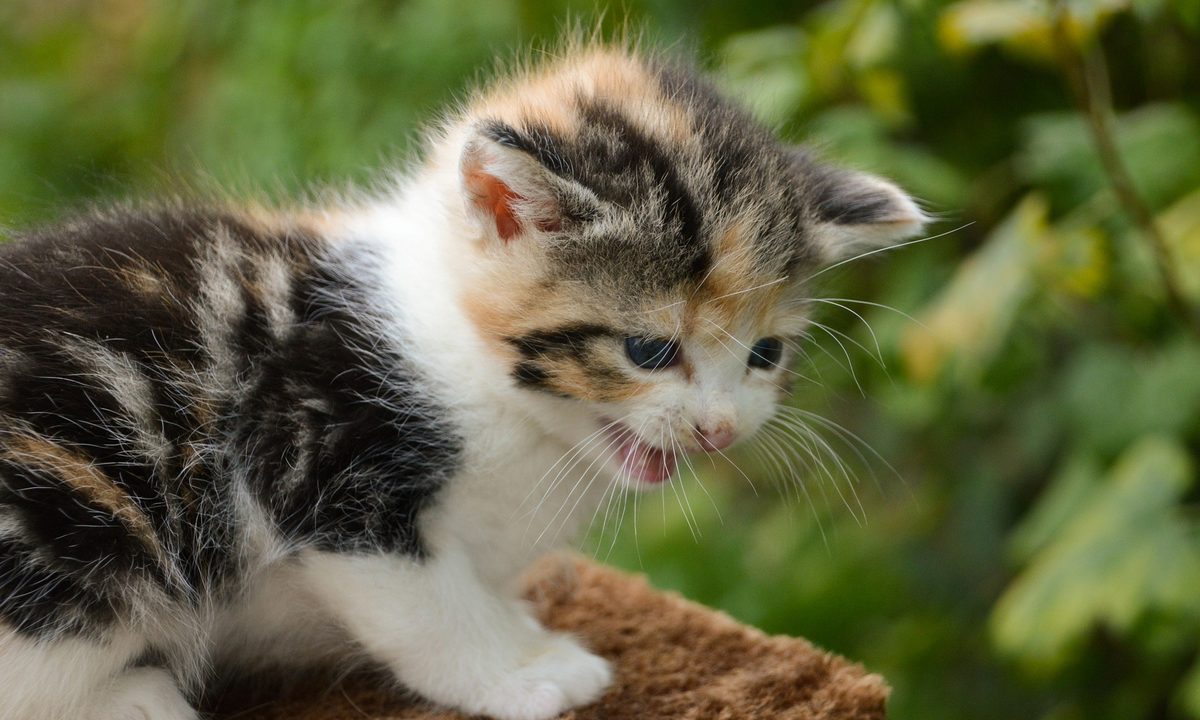Whether you’ve adopted a new kitten or you’ve rescued an adult cat, distinguishing males from females can be tricky, even for professionals. Figuring out how to tell if a cat is a boy or girl is even more difficult with kittens and neutered male cats, especially if you don’t have another cat to use for physical reference.
However, there are some physical characteristics — as well as behavioral cues — that can help you determine a cat’s sex. We’ll walk you through everything you need to know about how to tell kittens’ sex and whether you should name your new feline friend Alex or Alexis.
When can you tell the sex of a cat?

According to Dr. Jennifer Coates, determining the sex of a kitten is extremely difficult when cats are younger than 8 weeks old. Because kittens are so tiny and have soft, downy fur, making out the shape of their orifices is easier said than done. Once your kitten is 8 weeks old or older, you should be able to determine the shape of his or her genitals.
How to determine your cat’s sex

With your kitten on your lap or cradled in one arm, scratch above the tail until it naturally lifts in response to stimulation. If your new kitten is a female, she’ll have an elongated line beneath her anus — this is the entrance to her vulva. Male cats have a smaller, circular penile opening beneath the anus. Additionally, the distance between the penis and the anus is also much longer than the distance between the anus and the vulva. (For a visual reference, you can consult the ASPCA’s guide.)
If you still can’t tell whether your kitty is a boy or a girl, you may want to ask your vet. Please refrain from feeling for the penis and testicles, as kittens are frequently neutered at an early age, and a kitten’s penis is too small and delicate to be felt.
Other ways to determine a cat’s sex

While both male and female cats come in a wide variety of coat colors, there are exceptions to the rule: calico cats and tortoiseshell cats. Because genetic inheritance requires two X chromosomes to produce the coloration seen in calicos and torties, they are almost always female. Similarly, almost 80% of orange tabby cats are male. Behavioral traits aren’t the most reliable way to determine a cat’s sex, but in the case of fur babies who haven’t been neutered or spayed, their traits may hint at your cat’s sex.
Typically speaking, male cats are more likely to attempt to escape your home, spray urine to mark their territory, or display aggressive behaviors like biting and scratching. On the flip side, female cats who haven’t been spayed tend to be more docile and affectionate than male cats who haven’t been neutered. There’s a common misconception that male cats are more loving, which causes some prospective pet parents to refuse to adopt female cats. However, research indicates that your cat’s behavior has more to do with their home environment and how well you’ve bonded with your feline friend than it does with their sex.
Why is it important to know your cat’s sex?

If you’ve ever suffered from a urinary tract infection (UTI), then you know just how painful and debilitating they can be. But did you know that your feline fur baby is also at risk of developing a painful UTI? Unfortunately for male cats, an otherwise painful infection may prove to be potentially life-threatening. A male cat’s urethra is thinner than that of a female cat, leaving them more likely to develop urethral blockages. Symptoms of a urinary tract infection include:
- Loss of appetite
- Frequent urination
- Crying while urinating
- Inability to produce urine
- Presence of blood in urine
- Urinating outside the litter box
- Licking or dragging genitals across the carpet
Keeping your cat’s litter box clean, providing adequate fresh food and water, and adding wet food to your cat’s diet to increase hydration can all help prevent urinary tract infections. If you suspect that your beastie has a UTI, it’s time to see the vet. Once tested and diagnosed, your cat will most likely be given a course of antibiotics and possibly a painkiller to manage discomfort.
Do all male cats spray?

Spraying can be a menace to cat moms and dads — it smells and will cover your couch or curtains in pet urine. Spraying usually starts when kitties enter their teenage years and are able to reproduce, about 6 months old. Male cats are far more likely to claim their territory this way though females will do it, too. By and large, there’s a simple solution: Many felines stop spraying once they are spayed or neutered.
However, some other things can trigger a recurrence of the behavior. Having too many cats in the house, increased stress levels, or a new medical condition could all lead to a few more spray sessions after the procedure. Work to create a safe and relaxed environment for your furry friend and you’ll be just fine.
Closing thoughts

Finding out your cat’s sex can be tough — even for experienced veterinarians — but it’s an essential step in becoming a pet parent. In addition to being able to match your kitty’s name to their sex, knowing your mouser’s sex can help you better predict their behavioral quirks if you decide not to neuter or spay. Most importantly, knowing your cat’s sex means you’ll also be able to keep an eye out for health complications, like UTIs.
Regardless of what some people think, you shouldn’t rule out a female cat because of the myth that males are sweeter. You also shouldn’t dismiss the idea of adopting a male because he may develop a UTI. (Urinary tract infections are incredibly rare in cats, with only 1%–2% of cats developing the infection.) Ultimately, the best cat for you is the one you feel drawn to adopt, male or female.




